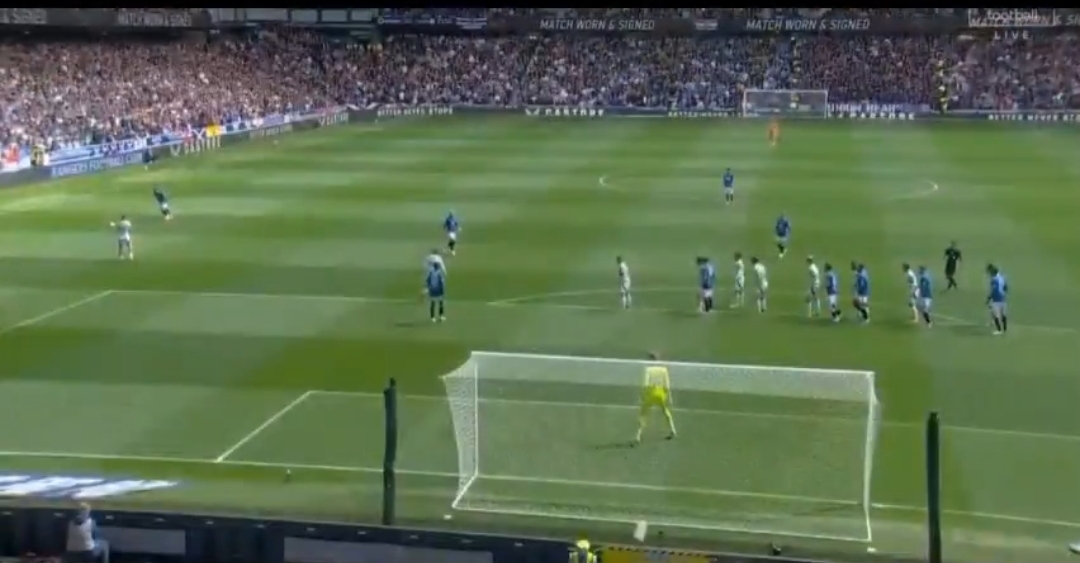Mike Dean slams the VAR decision that disallowed Raskin goal vs Celtic
On May 4, 2025, during a heated Scottish Premiership clash between Rangers and Celtic at Ibrox, a controversial VAR decision in the 24th minute disallowed a goal by Rangers’ midfielder Nicolas Raskin, sparking intense debate. The incident, which occurred during a match that ended in a draw with Celtic already crowned champions, has been widely discussed, with former Premier League referee Mike Dean weighing in on the VAR’s handling of the offside call. This moment not only shifted the game’s momentum but also reignited scrutiny over VAR’s application in Scottish football.
Raskin’s goal came from a freekick and which he headed the ball in the net. The Ibrox crowd erupted, but the celebration was cut short as the linesman’s flag stayed down, allowing play to continue before VAR intervened. Referee Nick Walsh, supported by linesmen Frank Connor and Dougie Potter, had initially deemed the goal valid, suggesting no clear offside from the on-field perspective. However, VAR official Andrew Dallas, assisted by Andrew McWilliams, reviewed the play and ruled Raskin offside, nullifying the goal. The decision hinged on a marginal call, with the VAR lines allegedly showing Raskin’s position as fractionally beyond the last Celtic defender.
Mike Dean, a prominent refereeing voice, later claimed the VAR team mishandled the offside review, asserting that the on-field onside decision was correct. Dean argued that the VAR’s line-drawing process was flawed, a critical error given the technology’s reliance on precise camera angles. In Scottish football, the Hawkeye system, used for offside decisions, often operates with limited camera angles due to budgetary constraints, leading to subjective interpretations. Dean suggested that the lines, which are manually drawn by VAR officials, were misaligned, failing to accurately reflect Raskin’s position relative to the defender. He emphasized that marginal calls, where lines overlap, should favor the attacker, as per updated IFAB guidelines, and the on-field call should have stood absent a “clear and obvious” error.
The decision drew parallels to past controversies, such as the 2023 Luis Diaz incident in the Premier League, where a clear onside goal was wrongly disallowed due to VAR miscommunication. In Raskin’s case, the lack of semi-automated offside technology, which could have provided a 3D positional analysis, exacerbated the issue. Fans and pundits, including voices on platforms like The Celtic Blog, criticized the subjectivity of VAR in Scotland, noting that blurry camera angles and hand-drawn lines undermine the system’s credibility. Celtic supporters argued the call was correct, while Rangers fans, backed by Dean’s analysis, felt robbed of a legitimate goal.
This incident underscores broader issues with VAR in Scottish football, where financial limitations and human error amplify controversies. For Rangers, the disallowed goal was a missed chance to gain early control against their rivals. For referees and the SFA, it’s another call to address VAR’s transparency and accuracy, ensuring decisions don’t overshadow the game’s integrity.





